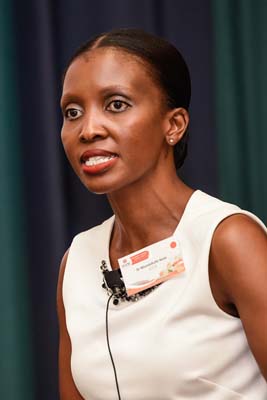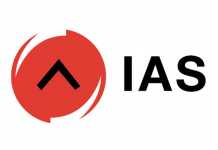Service delivery in the public sector is at the best of times a contentious issue and there is a long way to go in South Africa before we have a completely seamless and functioning infrastructure and system in place that will satisfy all Government’s customers – its citizens. Nonetheless, progress has been made in some regards, and it is also important to acknowledge this and to give credit where credit is due.
Nelson Mandela Bay garnered the position of The Best Municipality in the 2016/2017 Ask Afrika Orange Index by obtaining the highest service score as ranked according to the Orange Index Score calculation. Ask Afrika’s Orange Index celebrated its fifteenth year as South Africa’s most widely referenced service excellence benchmark, which provides the foundation for in-depth discussions on service trends and diagnostics in the South African landscape. It is known for its singular breadth measuring across 33 industry sectors, both private and public. These are some of the key service delivery trends unpacked by Sarina de Beer at the recent Ask Afrika Orange Index conference – that can be used as a guideline to satisfy citizens.
Be professional to each individual
“Service levels have gone down and organisations are not mastering the balance between overall satisfaction and emotional satisfaction. This year our 15 000 respondents said that what matters most to them is the level of interest shown by the employees in them as an individual. This has massive implications for how we engage. In addition, it is about professionalism – we need to master the complexity,” explained de Beer.
‘Soft’ elements are imperative in the long term
“Transactional excellence won’t yield loyalty or a perfect Net Promoter Score (NPS). The softer, longer term investments are imperative, like building a trusted relationship and reputation,” she continued.
The importance of measuring these ‘softer’ elements specifically within a service context was emphasised. It is crucial to understand how to impact reputation and trust through service delivery channels. Emotional highs are driven by the long term commitments, which can’t be sufficiently built into transactional moments of truth. The lows are driven by the lack of first call recognition (FCR), treating customers fairly (TCF) and effort.
Processes detract from customer experiences
Service delivery touchpoints or channels are not optimally delivering on transactional experiences. Processes are letting employees down and detracting from customer experiences, relationships, trust, reputation and loyalty. It’s all about getting the basics right and being human.
“Service delivery needs to be based on authentic, congruent engagements. The weight has now been fairly evenly distributed between getting the transactional efficiencies right and delivering these in a personalised and authentic, in-touch way,” said de Beer.
“People and process dimensions in service delivery are now contributing about 50-50 to loyalty with a skew towards the softer elements, rather than procedural perfection. Loyalty is built through trust, values, authentic relationships and a solid reputation. Trust needs to be earned consistently and makes up just over 50% towards building a loyal partnership. This is followed by fairness, responsiveness and first call resolution (FCR) which has the biggest impact on emotional satisfaction,” she continued.
There is not such a big generational gap
Different generations rate service delivery pretty similarly, but we see generational differences in ownership and access. This impacts on the youth’s spending power, needs and what they want in terms of service delivery.
“The perceived satisfaction is pretty consistent despite what we believe. Expectations are, however, different, as are realities and frames of reference. Life stages need to be considered and clearly embedded in segmentation and profiling,” said de Beer.
All the dimensions work together
“All the benchmarks in the Ask Afrika Orange Index are critical, so don’t choose just a few to focus on. It is a package deal that needs to work collectively. Some of them build and some detract, like effort and fairness have dropped in the significance of their impact. Fairness in particular will most probably regain its significance dramatically in a value based society. You can’t build or have trust, reputation or a relationship without fairness, but you might tolerate a lack of effort,” said de Beer.
Shifting power paradigms
The power dynamic in the service delivery environment is shifting, “The paradigm now is power parity for society, customers or citizens also have a responsibility in authenticity, respect, how they choose to engage. Consequences matter both ways,” said de Beer.
If we look at the global context we can see how important it is that Government listens to its citizens. “Different communities make different choices, and often the choice is about a need for change. People can even make the wrong choices, fundamentally so, if they feel heard or resonate with the point of difference rather than just more of the same, if they don’t feel heard. We place a different emphasis on reputation, but reputation is about what we perceive we need and what will drive the change we want,” said de Beer.
Citizens are going back to issues and looking for meaning and change takes the significance off process, they are rethinking engagement, values, prejudice, respect, humanity, how they are treated, what they perceive to be fair and what they fall back on – options, choice and the possibility for things to change.
Government engages with research
“It is not always recognised that Government engages with research and knowledge management and strives for excellent service to all. It’s an ongoing challenge, but also important to recognise achievements,” said Dr Ntombifuthi Nala, Director of Research and Knowledge Management at GCIS, when speaking about service delivery within Government at the recent Ask Afrika Orange Index Service Diagnostics and Social Trends Conference, held at The Gordon Institute of Business (GIBS).
Background to the Ask Afrika Orange Index
Launched in 2001 the Ask Afrika Orange Index has a tracking history of service in South Africa for the past 15 years based on robust sample sizes. The views gathered by the Index are done through 15,000 interviews across South Africa and the data is independently audited. Its longevity is testament to its relevance to both public and private sector with regards to providing a reliable yardstick for service measurement in South Africa.
To order find out more or order Ask Afrika Orange Index research reports contact: (012) 428 7400 and speak to Dr Amelia Richards (amelia.richards@askafrika.co.za ) or Mariëtte Croukamp (Mariette.Croukamp@askafrika.co.za ).
About the Ask Afrika Group:
Ask Afrika Group is the largest independent South African market research company. The company focuses on local relevance, benchmarked against the global context, and is also a member of European, Market Research Organisation (ESOMAR). Apart from its South African footprint, Ask Afrika Group also operates in a dozen other African countries.
Ask Afrika Group is well known for delivering strategic and large-scale field projects and for creating benchmarks for industry.
Target Group Index (TGI) research, for which Ask Afrika Group owns the South African copyright, has an annual single source sample of 15 000 locally and 800 000 globally. It has a global geographic coverage of 70 markets, and measures services, products, media, and brands. Ask Afrika’s knowledge of brands is extensive and TGI is already used by the majority of Top 50 advertisers and media owners in South Africa. TGI complements local and global currencies. It has various integrated software modules and offers the most comprehensive insights into demographics, behaviour, product and brand use and attitudes.
The Ask Afrika Groups’ exclusive product suite includes the Ask Afrika Orange Index®, the Trust Barometer™, TGI, Ask Afrika ICON Brands™ and Ask Afrika Kasi Star Brands, the Digital Barometer and Gateway. Ask Afrika is known for its exceptional service delivery and innovation.
Website: www.askafrika.co.za

























































































